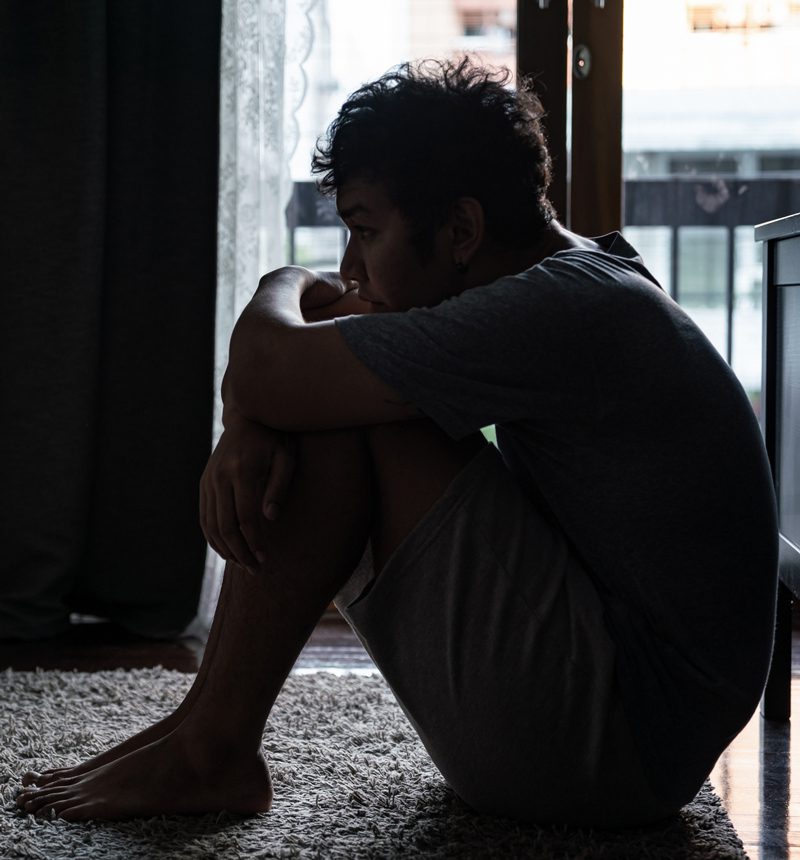Fentanyl Addiction Treatment in San Antonio, Texas

Treating Fentanyl Addiction in San Antonio
Explore Fentanyl Addiction & Treatment
Are you looking to take back your life?
(888) 235-3003
Treatment Paths
Our Programs
What is Fentanyl?
It is similar to morphine but is up to 100 times more potent.
A doctor can legitimately prescribe fentanyl for severe pain due to cancer or following surgery.
The illicit use of fentanyl is a serious problem and can lead to addiction very quickly.
Fentanyl is available in several forms, including:
- Film
- IV drips
- Injections
- Liquid
- Lollipops
- Lozenges
- Nasal spray
- Powder
- Pills
- Pain patches
customers they are buying oxycodone. Their customers think they are getting the oxycodone they are used to taking; however, they are getting a much more potent drug and are at higher risk for an overdose.
Drug dealers often sell fentanyl and tell their Common street names for fentanyl are:
- Apples
- Eighties
- Fake eighties
- Green apples
- Greenies
- Shady eighties
The Centers for Disease Control’s National Center for Health Statistics (NCHS) collects data on deaths involving drugs associated with overdose deaths.
In 2022, 107,941 people in the United States died from a drug overdose (prescription or illicit drugs).
- The total number of drug overdose deaths increased from 2019-2022; 107,941 were reported in 2022. Deaths involving synthetic opioids – mostly fentanyl – continued to grow.
- A total of 73,838 fatal overdoses were reported in 2022.
Warning Signs of a Fentanyl Overdose
Fentanyl, when used in larger quantities than prescribed by a doctor, can lead to an overdose.
When obtained illicitly, the customer is definitely at risk for overdose since they don’t know whether the fentanyl has been mixed with other drugs like heroin or cocaine.
Someone may think they are buying oxycodone, which they are used to taking, and get fentanyl – a much more potent drug. The risk of an overdose increases significantly.
The signs of a fentanyl overdose are:
- Cold, clammy skin
- Confusion
- Difficulty walking or talking
- Dizziness
- Fainting/becoming unconscious
- Gurgling sounds
- Shallow breathing
- Sleepiness
- Small pupils
- Unresponsiveness

A fentanyl overdose is a medical emergency. If someone shows signs of overdosing on fentanyl, call 9-1-1 or your local emergency number. Naloxone can help reverse the effects of a fentanyl overdose. More than one naloxone dose may need to be administered to help reverse the effects of a fentanyl overdose, depending on how much was consumed.
Fentanyl Withdrawal
As someone with a fentanyl addiction either knows or suspects, withdrawal from this drug is challenging and can be painful. Along with severe cravings, a person in fentanyl withdrawal could feel:
- Aches and pains
- Anxiety
- Depression
- Diarrhea
- Exhaustion
- Fever
- Flu-like symptoms
- Increased blood pressure or heart rate
- Insomnia
- Irritability
- Nausea and vomiting
- Restlessness
- Sweating and chills
- Weakness
Treatment for Fentanyl Addiction
Residential Treatment Program
Stone River Recovery Center’s residential treatment program usually lasts for 30 days. We operate on a co-ed basis. Clients are evaluated individually, and their stay may be extended if needed.
The main goal of a residential treatment program is to help the participants build recovery resiliency.
An in-patient treatment program allows clients to focus their entire attention on their recovery. They can participate in group and individual therapy programs, early recovery skills development, and learn about co-dependency and restorative parenting. Stone River Recovery also offers addiction services to clients with traumatic brain injuries.
Intensive Outpatient Program (IOP)
The IOP can be considered an option for clients who don’t need the same level of supervision the residential program provides. These clients still require intensive support to treat their substance use disorder or mental health issues.
Stone River’s IOP, located in San Antonio, can be a good treatment option for clients struggling with substance use disorders (SUDs), co-occurring substance use, and mental health disorders (dual diagnosis). It could also be a good fit for clients who must balance their treatment with work or school commitments. The IOP allows clients to work on their recovery without letting go of their everyday responsibilities.
The treatment team will consider IOP for clients who can commit to attending sessions regularly and will actively participate in treatment. These clients should have a stable living situation and supportive family or social networks. Clients need a safe, sober place to stay while completing their IOP.
IOPs usually involve attending a group therapy session three times a week. Clients can choose whether to participate in individual counseling sessions.
Many people living with an addiction feel isolated from friends and loved ones. IOP groups play an essential role in healing and moving toward long-term recovery. The participants realize shortly after joining the group that everyone in the room has similar experiences, and no one will judge them for being an addict or someone with a mental illness.
The IOP groups at Stone River go beyond the peer-to-peer support offered in traditional Alcoholics Anonymous groups. Therapists holding Master’s degrees lead the groups; all of them have considerable experience in the addiction and mental health recovery fields. IOP groups help members learn how to manage their thoughts, emotions, and behaviors to prevent relapses.
Dual Diagnosis Fentanyl Addiction Treatment
- Anxiety disorder
- Bipolar disorder
- Depression
- Grief
- Schizophrenia
- Post-traumatic Stress Disorder
Contact Stone River Recovery Center for Help
If you or a loved one is struggling with addiction in San Antonio, Texas, Stone River Recovery Center is here to help you start your journey toward recovery. Our dedicated team of professionals understands the complexities of addiction and is committed to providing comprehensive treatment options tailored to your specific needs.
To get started on the path to recovery, we encourage you to reach out to us and schedule a consultation or assessment. This initial step allows us to gather important information about your situation and develop a personalized treatment plan.
Scheduling a consultation or assessment is easy. Simply give us a call or fill out the contact form on our website, and one of our friendly staff members will assist you. We understand that taking this step can be daunting, but our team is here to support you every step of the way.
At Stone River Recovery Center, we prioritize the confidentiality and privacy of our treatment services. We understand the sensitive nature of addiction and the importance of maintaining your privacy throughout the recovery process. Rest assured that all information shared with us is handled with the utmost discretion and in compliance with HIPAA regulations.
If you have any concerns about confidentiality or privacy, please let us know, and we will be happy to address them. Our goal is to create a safe and supportive environment where you can focus on your recovery without worrying about your personal.